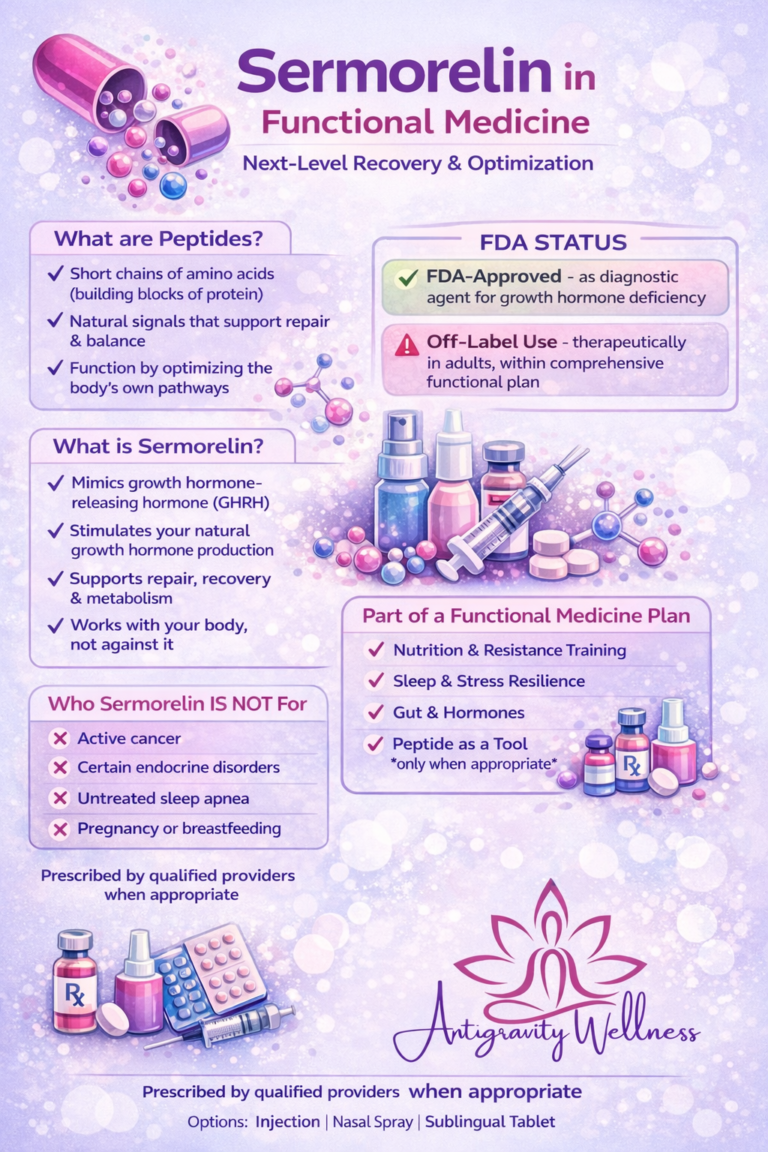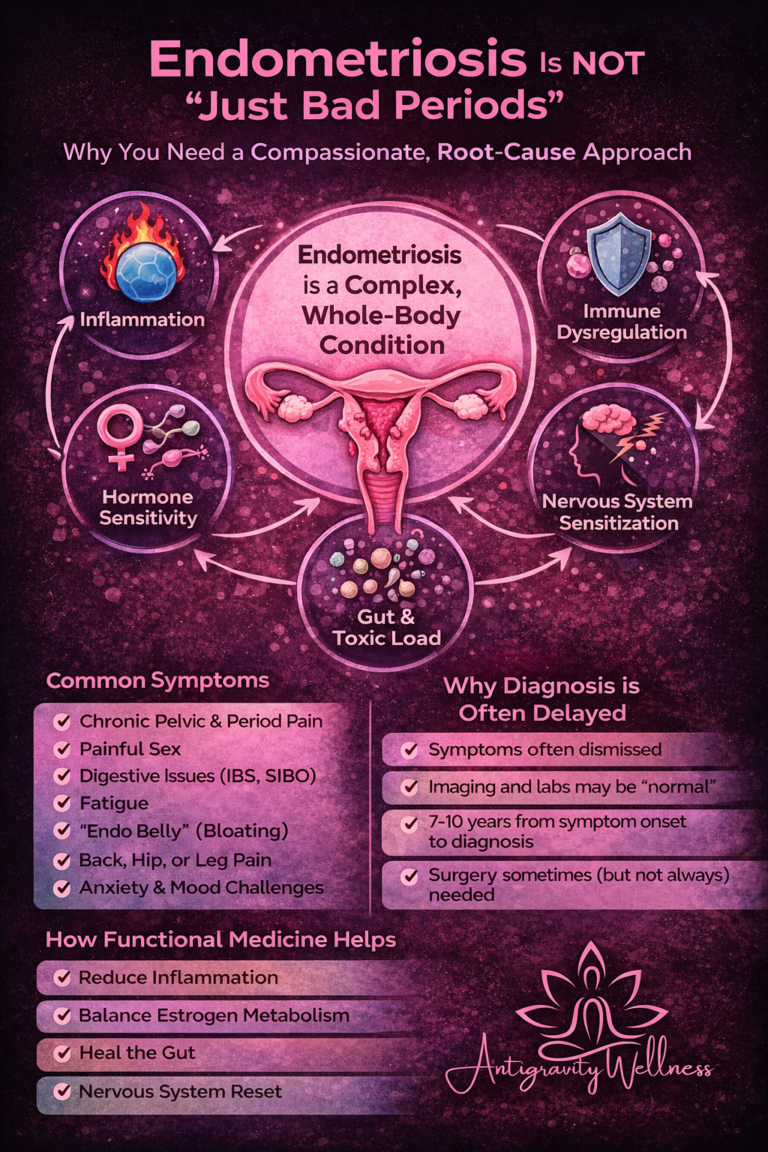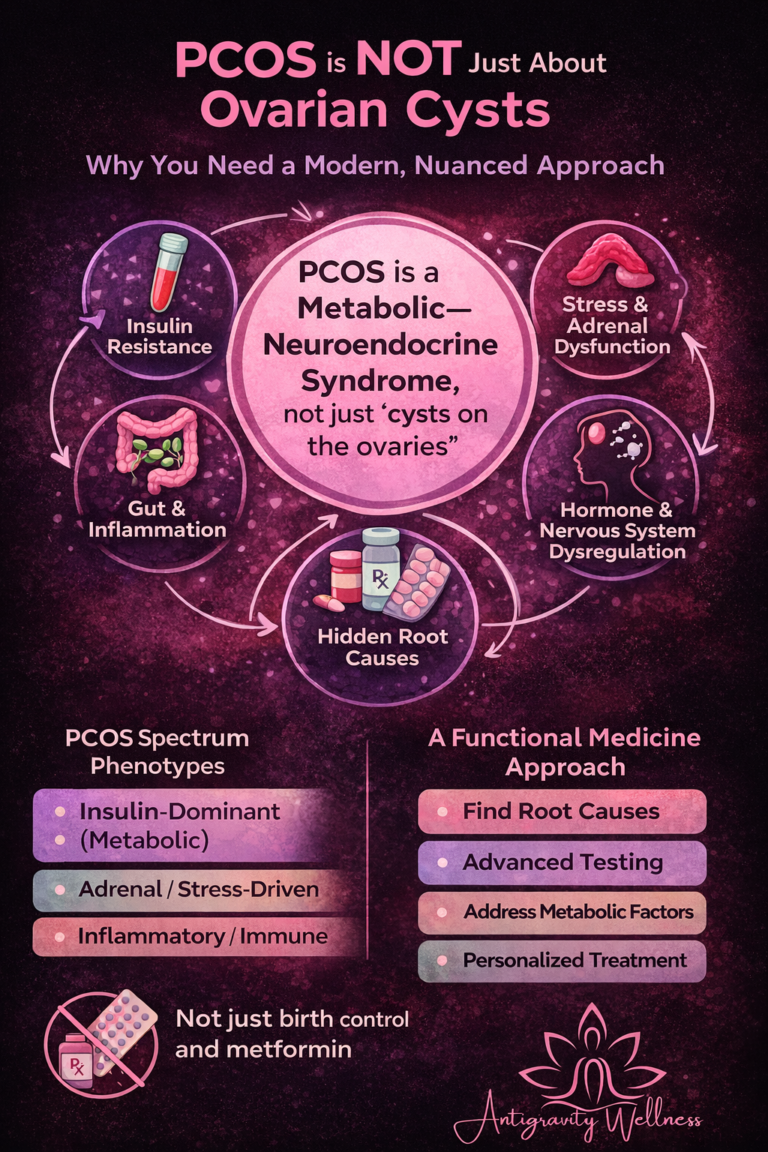
Thyroid disorders, particularly Hashimoto’s thyroiditis and hypothyroidism, are common conditions that can significantly impact overall health. The thyroid gland, a small butterfly-shaped organ at the base of your neck, produces hormones that regulate metabolism, energy levels, and body temperature. When the thyroid doesn’t function optimally, it can lead to a wide range of symptoms that are often overlooked or misdiagnosed.
—
What is Thyroid Disease?
Thyroid disease occurs when the gland either produces too little thyroid hormone (hypothyroidism) or too much (hyperthyroidism). Hashimoto’s thyroiditis is the most common cause of hypothyroidism and is an autoimmune condition where the immune system mistakenly attacks the thyroid, causing inflammation and impaired hormone production.
—
Signs and Symptoms of Low Thyroid (Hypothyroidism)
Hypothyroidism can develop slowly, and symptoms may vary widely between individuals. Common signs include:
Physical Symptoms:
Fatigue
Weight gain despite no changes in diet or exercise
Cold intolerance
Dry skin and brittle hair or nails
Hair thinning or hair loss
Constipation
Emotional and Cognitive Symptoms:
Depression or low mood
Brain fog or difficulty concentrating
Other Symptoms:
Muscle weakness
Hoarseness
Puffy face
Slow heart rate
—
Comprehensive Thyroid Testing
Diagnosing thyroid disorders requires a thorough panel of blood tests. Unfortunately, many providers only order TSH (thyroid-stimulating hormone), which can miss subclinical thyroid dysfunction. A full thyroid panel should include:
- TSH: Assesses thyroid gland function and pituitary response.
- Free T4: Measures inactive thyroid hormone circulating in the blood.
- Free T3: Measures active thyroid hormone that affects metabolism.
- Thyroid Antibodies: Identifies autoimmune thyroid conditions like Hashimoto’s.
- Thyroid Peroxidase Antibodies (TPOAb)
- Thyroglobulin Antibodies (TgAb)
- Reverse T3: Evaluates whether T4 is being converted into T3 or diverted into inactive reverse T3.
This comprehensive testing allows for accurate diagnosis and tailored treatment.
—
Lifestyle Modifications for Thyroid Health
Lifestyle changes are crucial for managing thyroid disorders, particularly autoimmune conditions like Hashimoto’s thyroiditis.
1. Dietary Changes
Gluten Elimination: Gluten may trigger inflammation and exacerbate autoimmune responses in those with Hashimoto’s. Removing gluten can reduce symptoms and improve thyroid function.
Anti-Inflammatory Diet: Focus on nutrient-dense foods like vegetables, fruits, lean proteins, and healthy fats.
Selenium and Zinc: These nutrients support thyroid function and are found in foods like Brazil nuts, eggs, and seafood.
Iodine: While essential for thyroid function, excessive iodine can worsen autoimmune thyroid conditions. Balance is key.
2. Gut Health
Address gut dysbiosis, leaky gut, and inflammation, as these can exacerbate autoimmune thyroid conditions. Probiotics, prebiotics, and an anti-inflammatory diet can help.
3. Adrenal and Hormonal Support
The thyroid doesn’t work in isolation. Adrenal health, ovarian hormones, and overall stress levels play a significant role in thyroid function. Chronic stress and high cortisol levels can suppress thyroid activity and hinder recovery.
—
Treatment Options for Hypothyroidism
- Levothyroxine
- The most common treatment for hypothyroidism, levothyroxine is a synthetic form of T4 (inactive thyroid hormone). However, some individuals may struggle to convert T4 into the active form, T3.
- Combination Therapy
- If T4-only therapy is insufficient, adding or switching to T3 (liothyronine) may improve symptoms.
- Natural Desiccated Thyroid (NDT): A combination of T4 and T3 derived from pig thyroid glands, available under brands like Armour Thyroid.
Addressing Conversion Issues
If the body struggles to convert T4 into T3, it’s critical to evaluate underlying causes, such as:
Nutrient deficiencies (selenium, zinc, or iron)
High stress and cortisol levels
Inflammation or gut health issues
—
Further Reading and Resources
Hashimoto’s Protocol by Izabella Wentz
The Thyroid Connection by Amy Myers, MD
Research Articles:
The Role of Gluten in Autoimmune Thyroid Disease
—
Let Antigravity Wellness Help You Restore Thyroid Health
At Antigravity Wellness, we specialize in helping women navigate thyroid imbalances, especially during perimenopause and menopause when these conditions often emerge or worsen. We offer:
- Comprehensive thyroid testing, including full panels to catch subclinical thyroiditis.
- Personalized treatment plans, including lifestyle modifications, dietary guidance, and hormone replacement options.
If you believe you’re experiencing symptoms of hypothyroidism, schedule a brief initial consult today. Our telemedicine practice serves women in Washington and Oregon, helping you regain energy, vitality, and health.




